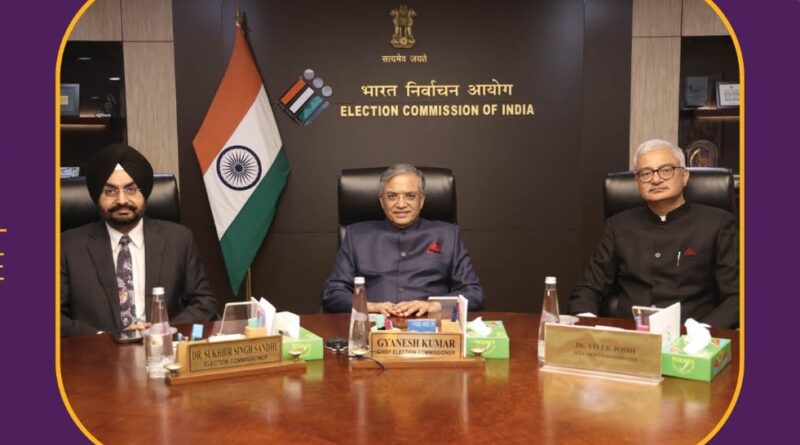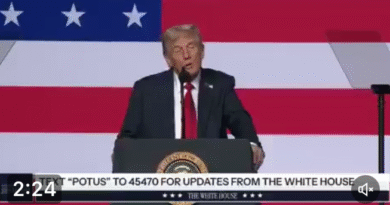Bihar Voter Roll Overhaul: 6.9 Million Names Axed, 2.15 Million Fresh Additions in Final SIR Tally; Total Electorate Now at 7.42 Crore
Election Commission’s rigorous revision sparks opposition outcry over voter disenfranchisement fears, even as it aims to purge duplicates and deceased from rolls ahead of 2025 polls
Patna – September 30, 2025
The Election Commission of India (ECI) unveiled the final electoral rolls for Bihar on Tuesday following an exhaustive Special Intensive Revision (SIR) exercise, resulting in a trimmed yet expanded voter base of 7.42 crore. This marks a net addition of over 1.5 million voters from pre-revision figures, achieved by excising 69.29 lakh entries deemed ineligible—primarily deceased individuals, duplicates, or those who had shifted residences—while onboarding 21.53 lakh new eligible citizens. The process, the state’s first comprehensive voter audit since 2003, has ignited a political firestorm, with opposition parties decrying it as a ploy to suppress turnout in the upcoming assembly elections.
Prior to the SIR kickoff in late June 2025, Bihar’s voter registry stood at a robust 7.89 crore. The preliminary draft, released on August 1, had already slashed the count to 7.24 crore by removing 65.63 lakh names, prompting immediate backlash. In the final iteration, an additional 3.66 lakh were culled, but 17 lakh of the earlier deletions were reinstated after verification appeals. Key deletions included 22.34 lakh confirmed deaths, 6.85 lakh duplicate entries, and a staggering 36.44 lakh cases of voters who had relocated without updating their details—a testament to Bihar’s high internal migration rates.
### District-Wise Disparities: Gains in Urban Hubs, Losses in Rural Strongholds
The revision’s impact varied sharply across districts, underscoring urban-rural divides in voter verification. Patna, the state capital and a bustling political nerve center, emerged as a clear winner with a 1.63 lakh surge, pushing its total from 46.51 lakh to 48.15 lakh voters. This uptick, attributed to streamlined urban enrollment drives and youth registrations, bolsters the district’s role as a bellwether for statewide trends.
In stark contrast, Saran district in north Bihar suffered a steep 2.25 lakh deduction, shrinking its electorate from 31.27 lakh to 29.03 lakh. Officials cited rampant outdated records and migration to urban centers as culprits, though local leaders from the Rashtriya Janata Dal (RJD) have flagged it as evidence of targeted purges in Yadav-dominated pockets. Similar contractions hit other migrant-heavy areas like Siwan and Gopalganj, where deletions exceeded 1.5 lakh each, potentially reshaping caste-based voting blocs.
Nationwide, the ECI has signaled plans to replicate Bihar’s SIR model across India, albeit with lighter documentation burdens in states last revised between 2002 and 2004. For legacy voters from those eras, self-declaration suffices for birth details, sparing them proof hassles. New entrants post-1987, however, must furnish parental documents, a measure aimed at curbing underage inclusions.
From Door-to-Door Scrutiny to Supreme Court Safeguards
Launched on June 24, 2025, the SIR initiative targeted Bihar’s notoriously bloated rolls, notorious for ghost voters and foreign infiltrations. Booth-level officers fanned out to verify 7.24 crore entries, achieving a 99.8% coverage rate by the July 25 deadline. The exercise identified 22 lakh fatalities and 36 lakh “untraceable” households, while 7 lakh migrants were flagged for address updates.
A pivotal boost came from the Supreme Court on September 8, elevating Aadhaar cards to the 12th valid identity proof for verification—clarifying its role as an authentication tool, not citizenship verifier. This eased compliance for millions, as the initial 11-document list had slowed rural enrollments.
To check or add names, citizens can visit voters.eci.gov.in or local booths until October 15; appeals against deletions remain open till mid-October, ensuring a buffer before poll preparations accelerate.
Opposition Fury: ‘Electoral Sabotage’ or Administrative Cleanup?
The revision has supercharged pre-election rhetoric, with the grand alliance of RJD, Congress, and Left parties labeling it a “sinister conspiracy” to erode their rural base. RJD chief Lalu Prasad Yadav thundered at a Patna rally, “After 22 years and five fair elections, why this panic now? It’s a BJP blueprint to rig the 2025 polls by axing poor and migrant voices!” Congress echoed the sentiment, questioning the June timing—mere months from campaigning—as suspiciously abrupt, arguing it could have waited post-elections for a “calmer” rollout.
BJP defenders, however, hail it as a transparency triumph. State president Samrat Choudhary countered, “This weeds out fakes that plagued past polls—22 lakh dead can’t vote! It’s democracy’s detox, not disenfranchisement.” ECI officials, maintaining neutrality, emphasized the drive’s apolitical intent: purging an estimated 5-7% invalid entries to fortify Bihar’s democratic bedrock.
As Bihar hurtles toward its 243-seat assembly showdown—expected by November—these rolls will define battle lines. With deletions hitting migration corridors hard, analysts predict tighter races in 50-60 seats, where even a 2-3% swing could topple governments. For now, the SIR stands as both a bureaucratic milestone and a political lightning rod, reminding all that in India’s electoral arena, every name counts.




